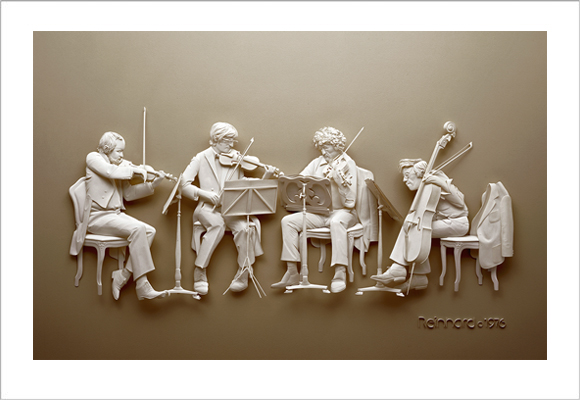How to Teach While Rehearsing
By Saleh Sabat
Rehearsal is an important aspect (at least it should be!) to all musicians, performers and teachers. It’s something we have spent countless hours doing throughout our careers. Whether it’s with a band, orchestra, or solo in a quiet place, it takes practice to develop good rehearsal skills.
Something I ask of my students often is to walk me through their home practice and rehearsal routines. How long do they warm up? What are their goals for a study or piece of music? How do they approach playing new material I’ve assigned to them? What parts of a certain piece of music did they focus on most? Their answers help me guide me to showing them better practice and rehearsal routines. It also gives me an opportunity to show them how these routines are effective in my own routines.
Once I’ve identified the flaws in my students home practice routines, it takes months of reinforcement for them to start developing better practice habits. However, I’ve found that there’s a really great way to show off great rehearsal skills to students. Invite them to one of your rehearsals.
We always encourage our students to attend live performances. There’s a lot that can be learned from attending a live show. When I was a kid, my teacher regularly invited me to rehearsals and recording sessions. Occasionally he would hand me the music and a guitar and say “Just play along.” I like to attribute a lot of my performing success in the past to the times I spent with my teacher and attending rehearsals with him.
Nowadays, I’m fortunate enough to perform weekly with a church band in my home town. The band consists of 2 guitarists, a bassist, a drummer, keyboards, and two – four vocalists. Occasionally we’ll have a choir, saxophone, or cello in the mix. Every Thursday evening we have a full band rehearsal. All the musicians are expected to show up having listened to the music and our charts prepared before Thursday night. I try to invite my students to attend the rehearsals, often having them read along with the chart and sit up on stage.
Sometimes, the rehearsals go off really well. All the musicians are on the same page musically, everyone is communicating and taking notes, and everything goes off without a hitch. Other times, the rehearsal starts 30 minutes late due to technical difficulties, musicians show up late, everybody is reading a different chart, and the guitar player didn’t listen to the right version of a song and didn’t learn all the correct lead lines.
Whether your rehearsals go smoothly or they’re just shy of a train wreck, your students will walk away with rehearsal do’s and don’ts, which you can discuss at your next lesson. I think it’s important that we include our students in our musical communities. For me, it was inspiring to sit in a rehearsal and play along. I developed a lot of confidence, as well as realistic expectations for achieving my goals.
Consider your students the next time you plan to rehearse. Inviting them may be the “secret ingredient” that it takes for them go get serious about their instrument.

Cathy_Conrad13
New post added at How to Teach While… http://t.co/g8XHxQjc0V
studiohelper
New post: How to Teach While Rehearsing (http://t.co/rv6TVap4bA)